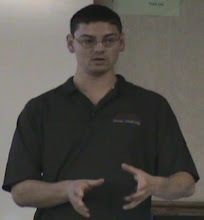A lot of material in the books overlaps each other, but I found that having several slightly different explanations helped to understand things better. Additionally, I came to find that some books had more complete coverage about certain topics. Keep in mind that my area is computer science- this means that I was more concerned with how quantum computers work mathematically as opposed to how to physically implement them.
Purkeypile's Essential Quantum Computing Texts

[1] M. A. Nielsen and I. L. Chuang, Quantum Computation and Quantum Information, 1 ed. Cambridge, UK: Cambridge University Press, 2000.
This is considered by many to be the essential text on quantum computing. Its coverage is pretty thorough, so you can usually find what you're looking for. However, the explanations can be a little brief, so I think the other texts are better for beginners. This was typically one that I used as a reference to find some details that might not be in the others.

[2] P. Kaye, R. Laflamme, and M. Mosca, An Introduction to Quantum Computing. New York City, New York: Oxford University Press, 2007.
I found this one did a great job on explaining the mathematics of quantum computing in the early chapters. If I had to pick one book to explain the basics of quantum computing, this would be it.

[3] M. Nakahara and T. Ohmi, Quantum Computing: From Linear Algebra to Physical Realizations, 1 ed. Boca Raton, FL: CRC Press, 2008.
I include this book not just because of the great and easy to read coverage of the entire subject, but also because of the complete example on factoring. Many papers and texts just treat part of factoring as a sort of a black box. If you want to know how to implement factoring from elementary operations, this is the book you have to have. This has been my most referenced book while trying to carry out more complex simulations.

[4] N. S. Yanofsky and M. A. Mannucci, Quantum Computing for Computer Scientists, 1 ed. New York, NY: Cambridge University Press, 2008.
This is another great book that covers all the necessary introduction topics. I include this book in the list partially because it is the only text I've come across that dedicates an entire chapter to quantum programming.
Worth Looking At
[5] M. Hirvensalo, Quantum Computing, 2 ed. Berlin: Springer, 2004.
This one has a good introduction to quantum information. I also found myself consulting this one if I wanted an alternate explanation of something I read in the Kaye text.
[6] N. D. Mermin, Quantum Computer Science: An Introduction, 1 ed. Cambridge, UK: Cambridge University Press, 2007.
This is one of the few books geared towards computer scientists. As such it had a refreshing view and made note of things that are of importance to a computer scientist, but not necessarily a physicist.
[7] L. Spector, Automatic Quantum Computer Programming: A Genetic Programming Approach, 1 ed. New York, NY: Springer Science and Business Media, LLC, 2004.
I include this one because it covers some aspects on simulation (albeit somewhat indirectly) that I didn't find covered in other texts. In particular, the algorithm for expanding a gate matrix was useful. It is also an interesting read.
[8] S. Loepp and W. K. Wootters, Protecting Information: From Classical Error Correction to Quantum Cryptography, 1 ed. New York, NY: Cambridge University Press, 2006.
This one is worth mentioning because of the coverage of quantum cryptography and good overall look at information in general.
--------
Perhaps in the future I'll also post some of the papers I consider essential, or some of the more popular science type books on quantum computing.

No comments:
Post a Comment